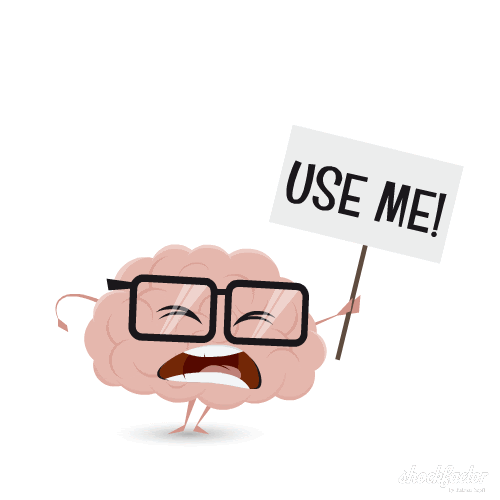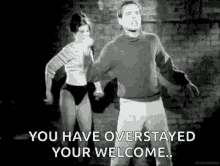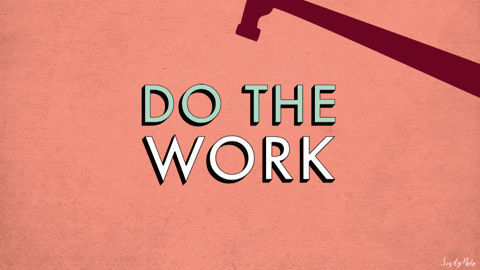Confidence: The Science, Struggle, and Practice of Believing You Can
Get stories like these delivered straight to your inbox
Sign up for the CultureStoke Newsletter
Think back to something you accomplished in your life that, at one point, felt impossible.
Maybe it was giving a big presentation, running that first mile, or signing up for the Zumba class you always wanted to take. Whatever it was, that moment was proof you could. We are capable of so much, yet we often give ourselves very little credit for it. This is where confidence is paramount.
However, confidence isn’t something you have; confidence is something you build.
But what is confidence? Do you really need it? Where does it come from? Are you doing things to help or hinder its growth? These are all things we are diving into in this edition of your Monthly Stoke!
Let’s start by getting clear about what confidence is:
Confidence is a person’s belief in their abilities, judgments, or capacity to succeed.
I want you to anchor in and pay special attention to that “belief in their own” part because (spoiler alert!) it will be a major theme in our time together.
When you boil it down, confidence is a skill, just like any other. And, if you have read any of my previous articles, you know that developing skills requires two things: a choice to employ them (I am going to do this) and practice (I am going to do this often).
Before we dive into where it comes from and how to build it, let's put something to bed: Does it even matter?
Does Confidence Even Matter?
Yes, yes, it very much does.
Here are the top three reasons why confidence is worth investing in:
Confidence (when realistic, read: not arrogance) improves performance. When we approach tasks or new ventures with confidence, we approach with a vigor that promotes tenacity and enthusiasm, versus tentativeness and readiness to abandon at the first sign of trouble.
Promotes growth through (wise) risk-taking. When we try something new and accomplish what we set out to do, we become more acclimated to the feeling of discomfort that only uncertainty can bring. Confident people are not fearless; they are simply more comfortable being uncomfortable.
Protects our mental health. That's right. Confidence is like psychological armor.
(Author’s Note: Stay with me, I am going to spend a little time on this because I think it is an underappreciated benefit of investing in confidence, and I want to explore it with you.)
When you are confident, your brain says things like “I can handle this,” or “I am capable of this.” Confidence can also boost your resilience. If you think about our physiology, we are built to be resilient. But it requires some tension or strain to build resiliency. Much like hands develop callouses when digging or lifting weights in response to friction on the skin, so too can our brains develop a callous in the form of seeing challenges as solvable and not confirmation of some perceived inadequacy. What is even cooler is what it does to how we view ourselves.
If you have been a subscriber for a bit, you may have heard me reference (or even read the article dedicated to) our brain bully. The vast majority of people struggle with negative self-talk. According to a study from the National Science Foundation, up to 80% of our daily thoughts are negative, and approximately 95% of those are repetitive - meaning that we can be letting the record skip on the same unhelpful thoughts constantly throughout the day.
Negative self-talk is mostly a learned behavior passed down through our family (most likely) or school environments in our formative years. I was recently discussing this in a workshop and asked attendees to take a moment the next time they experienced negative self-talk to recognize whose voice they heard. One attendee said she did not have to, as she already knew who it sounded like. I imagine that is not uncommon.
Unfortunate, but not uncommon.
Fortunately, however, practicing confidence and building up belief in our abilities, judgments, or capacity to succeed is an excellent way to shift that brain bully into a cheerleader. Healthy self-talk lowers stress, shame, and self-doubt, helping us to push even further than we thought we could!
Confidence also helps us establish and keep healthy boundaries! When we have a belief in ourselves, we are much less likely to suffer people who treat us like crap or try to drag us down. We are also less likely to question whether we did the right thing, cutting them out because of our elevated belief in our judgment.
Lastly, building our confidence encourages us to ask for help. I know. Sounds weird, right? But when you think about it, it really isn’t. People who lack confidence are less likely to ask for help for the same reason they are less likely even to try: a fear of failure (more on this later). When we are confident, we have a much easier time acknowledging we need help because of the realization that doing it (whatever it is) is silly.
Ugh! Fine–I know that was a lot, but I needed to hear it for me and it’s my article… so.. there..
Anyway, where was I?
Confidence, right! Critical skill, but where does it come from?
Where does confidence come from?
“Confidence is built in the doing but begins in the thinking…”
Much like most things, confidence starts in the brain. However, there is an interesting dance your brain performs to protect you that might be (read: definitely is) hindering your confidence.
Let’s go on a journey from idea to action and learn how your brain builds confidence!
The Prefrontal Cortex
Our prefrontal cortex (PFC), as its name would suggest, is located in the frontal lobe. It is also referred to as the “new brain” due to its role in higher-level cognitive functions. This portion of the brain is responsible for planning, prioritizing, decision-making, and self-control (important, given this topic).
PFC Fun Fact: The prefrontal cortex, the part of the brain that develops last and continues to develop well into a person’s mid-twenties!
The PFC also presents the first hurdle and gateway to confidence. As the epicenter for ideation and goal setting, your PFC is where all your “maybe I should start…” ideas come from. And almost just as quickly, it will start to rationalize why you shouldn’t do that thing. It will be very logical and reasoned, but potentially a bit of a jerk about it.
“You don’t have time for that…”
“You’re not good/strong/smart/fast enough for that…”
“You could never…”
I was giving a confidence talk recently and one of the attendees shared, “It is easy for me to come up with 100 reasons why I can’t or shouldn’t do something, when I really should think about reasons/ways I can…” Under the guise of protection, our brains will give us the very real, potentially legitimate reasons why we should not do something. This “protection,” however, routinely goes overboard.
Similar to lifting weights, our bodies have protections to keep us from coming even close to injury; therefore, our brains limit what we think we can lift, despite our capacity to do more. Our brains will do the same thing when we have a thought about trying to do something new/challenging. The first hurdle is acknowledging those concerns and deciding to proceed anyway. Now we get into the feels!
The Amygdala
This tiny, yet mighty, part of your brain is pretty much located smack-dab in the middle of your brain! Although it is small in stature, this little thing does a great deal of work for us. Mainly processing our emotions and specializes specifically in fear and anxiety. You can see why this guy plays a vital role in our confidence.
The amygdala is the part of the brain whose primary function is threat detection, our fight-flight-freeze response, and our decision making (yes, emotions play a significant role in our decision making). The interesting part about the amygdala is that it does not have the capacity for language, so when it does its work, it floods us with uneasy feelings to keep us from potential harm.
When we even think about attempting anything new, our fear center lights up, fearing potential danger. This is a second hurdle. Overcoming this hurdle requires our old friend, the prefrontal cortex. Our PFC needs to swoop in and assure the amygdala that we are not in danger, we are just stretching. Deep breath, we are doing this thing!
The Striatum
As humans, we love to do stuff!
We especially love to do stuff that feels good. When we do things that feel good, our brain, specifically our Striatum, gives us that good feeling (dopamine) to encourage us to do more of that thing. This is no different than when we do new things and succeed. Our brain says, “hell yeah, look at us go!”
This presents the next hurdle: if we defined success as being excellent at the new thing we are doing, we can quickly start to get signals that we should abandon because we are not seeing or feeling the gratification we hoped for. Be it pounds not being dropped on the scale, chords not being played correctly on the guitar, or our team not responding to new approaches in leadership. People who struggle with confidence will also struggle with determination and sticking to new things, because they are afraid of failure. When we understand this about ourselves, we can begin to take control and change the narrative; however, the answer lies in practice. We get a dopamine hit when we succeed, and we can change that so that “success” is about making the attempt, rather than whether or not we were successful in the traditional sense. Doing so will help us achieve the feeling of accomplishment we desire, but there is also a different way to frame it if we truly lean into being confident.
An interesting thing about this part of the brain is that we receive a positive dose when we succeed, but we also receive it when we think we are going to succeed.
This is why confidence is a skill worth investing in. Remember, confidence is a person’s belief in their abilities, judgments, or capacity to succeed. Confidence is a compounding skill. Meaning the more we lean into it, the more our belief in ourselves grows, leading to us feeling capable of doing more. And, our brain will continue to reward us for pushing those limits!
Speaking of keeping score… Sorry, transitions can be hard sometimes.
The Anterior Cingulate Cortex (ACC)
The ACC is the performance coach for your brain. The ACC watches how you are doing. It is the archivist who keeps track of all the wins and the losses. The ACC is the part of your brain that provides you with feedback and helps you adjust your strategy.
A vital function it serves is to help you assess what is working and what is not working. And, it does so in a non-judgmental way. Strictly factual. This part of the process is where efforts become habits and habits become behaviors. When we allow the ACC to do its work, it will objectively let us know how we are doing. The hurdle is making the choice not to give up too early.
I know that was probably too deep a look into the mechanics of confidence in the brain, but also… kinda cool, yeah?
When you distill it down to its fundamental elements, confidence is when your thinking brain calms your fearing brain and assesses past experiences while predicting success, and then gives you encouragement and feedback to let you know you are making the right moves. And, the more we do that, the more our confidence grows.
Unfortunately, we have some pretty insidious practices that we are all guilty of, which can be confidence-killers.
Confidence Killers
As mentioned in the previous section, our brains are programmed to protect us. Sometimes it does that job so well that it becomes detrimental to our ability to grow. While I have observed numerous confidence-eroding practices over the years, the following appear to be the most pervasive.
Let’s discuss what they are, how they affect us, and what we can do to change the narrative.
Negative Self-Talk
As I mentioned before, a study from the National Science Foundation found that up to 80% of our daily thoughts are negative, and approximately 95% of those are repetitive. This inner critic is loud, repetitive, and more importantly, rarely accurate. Super honesty time. I struggle with this. If you have been around me for any length of time, you know I have a triple black belt in self-deprecation. I do this as a disarming way to connect with people. As with everything, it is not without consequences.
Early in my career, I asked a mentor about what makes a great coach. His response was “connecting with people.” I remember thinking, “sweet, already got that!”
Feeling confident, I asked him what he thought I needed to work on the most.
His response: “...connecting with people.”
He must have read something in my face because he quickly elaborated. “It’s not that you don’t connect well with people, you do. But, it is how you go about it that is the problem.” Sharing his observations with me, he pointed out that the way I connect with people is to put myself down.
“It’s effective because it is disarming and makes you approachable,” he said. “Why is this a problem?” I said, with a lot of confusion and a hint of hurt ego.
“If you keep telling people you’re an idiot, eventually they are going to believe you.”
Yikes.
Here’s the thing, the moral of that story was that telling other people you are (fill in the blank, self-depricating statement), they might start believing you.
The moral of this story is that if we tell ourselves those negative things, things like “I am not capable,” “I am not smart enough,” “I am not talented enough,” etc. Over time, it rewires your brain to believe those things, expect failure, and thus avoid risk, which in turn prevents growth and the building of confidence.
How does one combat negative self-talk? You have to call it like it is, it’s a you issue. It could be an insecurity, a message you brought with you from your childhood, or a past mistake you're still holding onto. Negative self-talk is our brain generating false thoughts about something we genuinely feel.
To reframe those thoughts takes the conscious effort of catching them in action.
“I just told myself I am not smart enough.”
Once caught, you can now challenge it. “Why do I think that? Where is that coming from? What am I afraid of?” Once you know the thought and have discovered the root, you can begin the work of reframing.
Here is a real example of some reframing I had to do to combat my negative self-talk.
“I am not smart enough.” I felt this way because I received poor grades in school and was told I was a poor student. I believed this because grades were a significant source of identity during my formative years, and so I have placed a lot of value on performance. When I am thinking about striving for something new, I am reminded of a time when I did not feel accomplished. To change this to neutral or even positive self-talk, I can acknowledge that I did not get good grades in grade school, which is true. Then I can also admit that I have performed well in many other aspects of my life, which is also true. “I am not smart enough,” becomes “I am capable of a lot of things, especially when I put my mind to it.”
Giving in to negative self-talk is a tacit acceptance of the false limitations we put on ourselves. To the 80% of us who struggle with negative self-talk, in whatever way it presents itself to you, you’re not alone, and it is not the truth.
Another interesting facet about that story above. Remember how I felt confident when my mentor said that being a great coach means being able to connect with people, and then was quickly deflated when he said that was the thing I needed to work on the most? You cannot gain confidence from others. You can gain encouragement, motivation, and support from them. But, not confidence. Building confidence is a solo mission. People in your life can’t build confidence for you, but they sure can damage it.
Toxic People or Environments (filled with toxic people)
Mark Twain once said, “Keep away from those who try to belittle your ambitions. Small people always do that, but the really great make you believe that you, too, can become great.”
God love ‘em, but people can be the absolute worst.
People who mock, dismiss, or belittle you because you are trying to improve yourself and/or your life are not the ones who genuinely care about you. This includes your coworkers (even your boss), your family members (blood does not excuse being an asshole), or your friends (these are people you choose to be in your life; choose wisely). The reasons for not putting up with negative people or environments (which are typically filled with people who make it negative) are legion. They are probably a topic for another newsletter altogether. For this discussion, we are going to focus on the impacts related to confidence and building confidence.
For some, intrinsic motivation is enough to get people to push through on new endeavors. But, for us mortals, we need to 🎶get by with a bit of help from our friends 🎶. It is important to have a solid foundation of encouragement at all times. It is critical when we are stepping out of our comfort zone. Because, as mentioned before, we can’t get confidence from others, we can bring discouragement.
There are numerous studies you can read that show that emotions are contagious. It's true! What is equally true, and unfortunate, is that negative emotions spread faster and further than positive ones. Research shows happiness is socially contagious, increasing an individual’s likelihood of feeling happy by 11% per happy friend. In contrast, the presence of even one sad friend can double the likelihood of experiencing unhappiness.
Why am I bringing up happiness and emotions in a “toxic people” section in an article about confidence? I want you to think about the person who discourages you the most. That one family member, friend, or co-worker that you never share anything with because the moment you do…
“Why would you do such a thing?”
“Why are you trying so hard?”
“You’ll never be good at that…”
What is your general impression of that person? Are they typically happy? Are they someone you would define as confident? And yet, their negativity can hamper our desire to better ourselves.
Bottom line: If you have someone in your life who is constantly telling you you can’t, discouraging you from trying to become who you want to be, or making fun of you for even trying, I cannot encourage you enough to challenge the value of having that person in your life. I’ll even take it a step further. I don’t care who they are to you (parent, sibling, boss, etc.). You should be encouraged and supported. Draw firm boundaries if you have an extremely compelling reason why they need to be in your life. If you don’t have an extremely compelling reason, why are they still there?
Having positive, encouraging, and real people in your life is an integral part of the confidence-building journey, but those amazing people come with a warning label.
Constant Comparison
They say, “comparison is the thief of joy.” I say comparison is the killer of confidence.
Comparison is great if you are using it to inspire yourself. “I could do something like that,” “I want to do that,” etc. Where it becomes problematic is when the focus is on the person you are comparing yourself with. Comparison warps your self-perception and minimizes your strengths and the things that make you uniquely you.
Get inspiration from others.
Learn from others.
But don't try to or measure your worth by them.
You are not them, and that's a good thing. Remember the definition of confidence:
Confidence is a person’s belief in their abilities, judgments, or capacity to succeed.
Confidence has nothing to do with the abilities, judgment, or capacity to succeed of others. It is the belief in YOUR ability, judgement, or capacity to succeed.
Social media is an absolute cesspool for this confidence killer. One study about the impacts of comparison on social media found that “Downward social comparison (looking at someone you perceive as less than you) could be beneficial for individuals in a way that people who make downward social comparison in social media may have higher self-esteem and general belongingness levels than other individuals. On the other hand, people who make upward social comparison (those you perceive as better than you) in social media may have lower levels of self-esteem and general belongingness. Lower self-esteem is directly tied to your confidence.
Stop me if you have seen this movie before: You see a picture or a clip of someone living a life you desire or doing a thing you want to do and instead of it pushing you to put in the work, it sends our brain into a storytelling session about how lucky they are and how “you could never.” That's a load of crap. The fact is, any skill you want or anything worth having takes hard work and sacrifice.
There are no shortcuts, no magic potions.
You can learn from the mistakes and practices of others, but those came at a cost of experimentation and experience. If you have someone in your life that you admire, or find yourself saying, “I want to be more like them,” stop it. You are not them. You’ll never be them. And, you don’t want to be them. You want to be you, because that's all you can be. Shift comparison to inspiration, roll up your sleeves, do the work, learn from others, but don’t measure your worth by them.
Confidence needs evidence. If you haven’t practiced or had some success, your brain won’t believe in your abilities yet. Start small. Take action. Confidence grows through doing, not waiting.
But, you have to be real about it!
Fear of Failure
Our comfort zone is built around the things we are certain about. The things we have proved to ourselves. The things we know.
If we want to grow, we have to get out of our comfort zone.
That means we have to become comfortable with being uncomfortable. Let’s be real about what that discomfort is: fear. Researchers looked at nearly 10,000 people across 68 different studies. They found a clear pattern: When we’re afraid or anxious, we tend to overestimate risks and often shy away from decisions that could actually benefit us. In other words, people experiencing fear or anxiety significantly overestimate risk and usually avoid decisions that could help us grow. Repeated patterns of this behavior can erode confidence, stall progress, and distort how we evaluate our own abilities. Meaning living in fear will erode your confidence.
What is interesting about this fear of failure is that it is really perfectionism in disguise! No, really. Where does this fear come from? It could come from being worried about letting someone down. From embarrassing yourself in front of people. From not achieving a goal. Suppose we continue that logic, though that stems from a very real and very unproductive expectation that we are supposed to be good at all the things, instantly and forever. We set the bar so high for ourselves that anything south of perfection feels like failure.
It is the people who understand that the whole point of living is finding your full potential, not walking around pretending we have already achieved it, desperately hoping no one notices. History is rife with amazing people who have done amazing things, and two things can be drawn from every tale. One, they worked really freaking hard to get there, and two, they were not afraid of failure. Most of them chalked it up to a regular part of the process of growth. Because it is, we did not come out of the womb a finished product, and the even dirtier secret is we will never be one. The older I get, the more convinced I am that no one, and I mean no one, has all their you-know-what together.
I am not trying to get preachy. Hell, most of the time I am just winging it. But, I have a saying I have lived by for the majority of my adult life, “if you are not learning something new every day, you are doing something wrong.” The coolest part of living is that there is an endless amount of new things we can discover in this world, and the things we can learn about ourselves are as countless as the stars. Trying new things allows our confidence to grow, even when we don’t achieve what we initially set out to do.
Don’t be afraid to fail. Be afraid of never trying.
How to Build Confidence
Below is a list of things you can do today to start building confidence:
Start Small: Pick tasks just slightly outside your comfort zone. Think Legos! You can set big goals, but start with small steps.
Embrace the Experience (Do the damn thing): Confidence is built by doing, not just thinking. The learning and the growth come from action, from falling and getting back up. The only time in life you fail is when you fail to learn from the experience.
Reframe Failure as Feedback: Confident people aren’t immune to failure; they understand that failure is life's way of prompting us to change our approach. Set realistic goals, and when you fall short, think about what needs to change.
Change the story: “I am bad at this,” to “I had never tried this before, and now I know more than I did before. Now know what to do differently next time.”
Get curious: Swap the self-blame for self-inquiry. What specifically didn’t work? What can I try next time? What worked well that I should keep doing or do more of?
Keep perspective: This instance is a very small part of the rest of your life. Ask yourself, “Will this failure matter in five weeks? Five months? Five years?”
Celebrate the attempt: Just doing something new is worthy of celebrating. Bump how you did, celebrate that you did.
Embrace ‘yet’ thinking: Instead of saying to yourself “I can’t do this,” say “I can’t do this… yet.” Having a growth mindset means believing that you can grow through trying and learning, rather than assuming abilities are fixed and unchangeable. Check out Carol S. Dweck's book, “Mindset: The New Psychology of Success,” to learn more about this!
Stack and Track Wins: Every small success becomes proof you can do hard things. Document and celebrate them! Bonus points if you share progress reports with a friend or supporter. You are much more likely to follow through on things when you have a practice of accountability and share it with someone you trust.
Pro-Tip: Dry-erase markers on the bathroom mirror are a fantastic way to do this. An excellent place for encouraging notes, tracking goals, and gentle reminders to keep going even when it is hard.
Surround Yourself with Encouragers: Confidence is built in the doing, but it helps to have people who are cheering you on. Some data suggests that sharing your goals with someone you respect results in a greater commitment to and performance in the effort.
Change Your Self-Talk: The words you say to yourself matter… a lot. See above for more 😁
Conclusion
Confidence isn’t about putting on a mask or convincing the world you’ve got it all figured out. It’s about proving to yourself, one small step at a time, that you can handle more than you thought you could.
I want to leave you with a final piece of advice. You’ve probably heard the phrase “fake it till you make it.” Kindly throw that phrase in the trash.
I know it sounds catchy, but it’s terrible advice for building confidence. Think about it when you know you’re faking, deep down, you are reinforcing the very belief that you’re not capable. It’s like trying to build a house on quicksand. On the surface, it might look like progress, but there’s nothing solid underneath, and it’s definitely not going to last.
Real confidence doesn’t come from pretending. It comes from practicing - from doing the uncomfortable thing, collecting evidence that you can, and building trust in yourself through effort and reflection.
So, don’t fake it. Do it. Show up, try, fail forward, adjust, and keep going. That’s how belief in your own abilities grows - and that’s how confidence stops being an idea and starts becoming a way of living.
You are capability waiting to be exercised.









